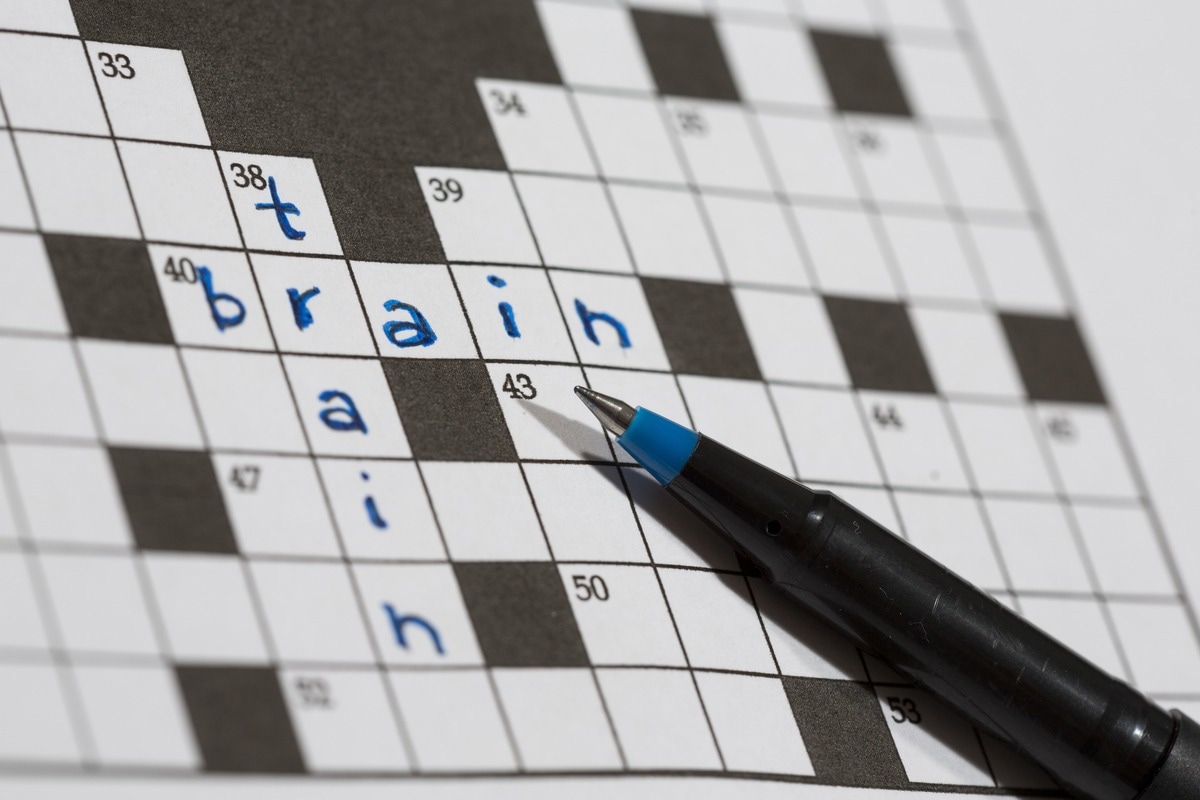Introduction
Attention- and working memory-based brain retraining
How effective is brain training?
The neural and behavioral basis of brain training
The state of brain training: conclusions
References
Further reading
Brain training is broadly defined as engaging in a specific program or activity that enhances a cognitive skill or general cognitive ability through repetition over a predefined time frame.
Brain training can produce measurable changes at the behavioral, neuroanatomical, and functional levels. Brain training that focuses on programs that exercise attention appears to improve emotional control and cognitive function.
 Image Credit: Robert Kneschke/Shutterstock
Image Credit: Robert Kneschke/Shutterstock
Attention- and working memory-based brain retraining
Through the practicing of games or tasks that result in competing responses, attention training can strengthen the neural networks underlying the control processes. Attention is defined as a selective focus on specific components of the external environment or can take the form of concentration on specific thoughts and processes. It is a strong modulator of cognition.
Many programs target working memory, which is a system that mediates transient storage of information, its modification, and protection from corruption. Alongside attention working memory, sustained attention can be attained through meditation, schooling, interaction with the outside world, exercise, and musical training. As well as effects on attention, they are thought to improve cognitive ability and emotional control.
How effective is brain training?
Brain training is thought to be particularly relevant for developmental psychopathology. It is thought to have the potential to alleviate symptoms of disorders such as attention deficit hyperactivity disorder (ADHD). ADHD is characterized by goal-directed behaviors and deficits in behavioral inhibition. Current treatments for ADHD involve psychotropic medications which produce marginal effects. However, over time, unwanted side effects can attenuate. Therefore, these limitations make brain training an attractive adjunct to more common neuropharmacological treatment.
In addition to its specific functional effects in certain disorders, brain training may be generalizable – that is widely applicable across a range of situations, not restricted to the type of task challenged by the brain training exercise intervention. This generalizability (in theory) makes brain training an attractive commercialized tool, though often with unsupported, and arguably unrealistic outcomes promised to consumers.
In practice, it is important to note that studies of computerized attention training and working memory training demonstrate that trainees can significantly improve cognitive skills related to the intervention. These findings suggest that training is typically restricted to task-specific skills. However, some findings suggest that they may be generalized beyond these, and apply to untrained overarching abilities. There have been reported improvements in the ability of trainees to solve problems in novel situations; this is called fluid intelligence.
The reason for this effect is thought to arise from overlapping neural networks in the prefrontal cortex which underlie both working memory and fluid intelligence. The claims of such transferability are contentious as the transfer of skill from task-specific to novel situations may simply be the result of training for the task; that is, training programs already challenged the abilities that researchers then test in new situations.
In addition, among the experimental results reported, inadequate controls if any, are used. Overall, rather than brain training being generalizable, results may simply arise due to reasons such as training to a task i.e., training someone how to perform a specific task well.
It is important to note, however, that brain training is widely considered to be groundbreaking as it has the potential to change the largely pharmacological-based therapy approaches to neurological problems, and indeed promote enhanced mental and psychological well-being.
 Image Credit: Jne Valokuvaus/Shutterstock
Image Credit: Jne Valokuvaus/Shutterstock
The neural and behavioral basis of brain training
Brain training relies on neuroplasticity, which is a change in the neural structure and function in response to an environmental stimulation or experience. Research suggests that environmental and genetic factors both impact the physical structure of the brain and its development. Taken together, early findings indicate that the developing brain is susceptible to change.
Neuroplasticity has been evidenced to persist into adulthood where the repeated practice of skills required for a job appears to induce lasting changes in neural structure. For example, London taxi drivers have been found to possess larger volumes of grey matter in neural areas that are associated with spatial memory, professional typists possess more developed neural regions related to motor task programming, and musicians have larger cortical representation of the digits and enlarged auditory, motor, and visual-spatial regions in the brain.
These studies demonstrated that the greatest changes occurred over a period of time and that extensive training or practicing a specific skill could alter the structures of neurons and their function over a relatively short time. These changes have been documented using magnetic resonance imaging (MRI).
This reveals increased grey matter volumes in areas of the brain that are associated with complex visual motion in young adults in response to three months of practicing a juggling task. This is corroborated by results from diffusion tensor imaging, which saw white matter configuration in as little as four weeks of juggling. In other contexts, a study has reported changes in the grey matter of medical students after they studied for three months for an exam - and recent studies show that these changes can occur in as little as one week of training.
Collectively, studies suggest that functional and morphological alterations in the brain are stimulated through mastering expertise in a specific area as well as skill acquisition.

 Related: Training the Brain – Strengthening Neural Networks
Related: Training the Brain – Strengthening Neural Networks
The state of brain training: conclusions
Overall, brain training is both evidence-based and hyped. Consumers are largely oversold on the individual benefits attributed to modules and programs for specific conditions such as ADHD. These claims are scientifically unsubstantiated in most cases. For these programs to be considered clinically useful, they need to be generalizable and need to show tangible improvements in skills in different settings.
Although brain training is accessible through computerized programs, research has shown that benefits can be achieved through alternative means such as contemplated techniques and lifestyle-related practices. In most cases, brain training can represent an adjunct in the context of pharmacological treatment options for certain psychiatric disorders particularly because pharmacological interventions are associated with undesirable side effects.
Despite promising findings, there are caveats in the data available that have been put forth. These limitations include inadequate controls and measures of cognitive behavior, and function, and under sustainability of the training practice. These caveats introduce skepticism and the need to possibly re-evaluate research standards in this area.
Further research is needed to determine the forms of training that will be of a specific benefit, including the dependency on training frequency and the method of delivery.
 Image Credit: Chinnapong/Shutterstock
Image Credit: Chinnapong/Shutterstock
References
- Rabipour S, Raz A. (2012) Training the brain: fact and fad in cognitive and behavioral remediation. Brain Cogn. doi: 10.1016/j.bandc.2012.02.006.
- Nacke LE, Nacke A, Lindley CA. (2009) Brain training for silver gamers: effects of age and game form on effectiveness, efficiency, self-assessment, and gameplay experience. Cyberpsychol Behav. doi: 10.1089/cpb.2009.0013.
- Owen AM, Hampshire A, Grahn JA, et al. (2010) Putting brain training to the test. Nature. doi: 10.1038/nature09042.
- Bonnechère B, Klass M, Langley C, et al. (2021) Brain training using cognitive apps can improve cognitive performance and processing speed in older adults. Sci Rep. doi: 10.1038/s41598-021-91867-z.
- Uddin LQ. (2021) Cognitive and behavioral flexibility: neural mechanisms and clinical considerations. Nat Rev Neurosci. doi: 10.1038/s41583-021-00428-w.
Further Reading
Last Updated: Jun 29, 2022